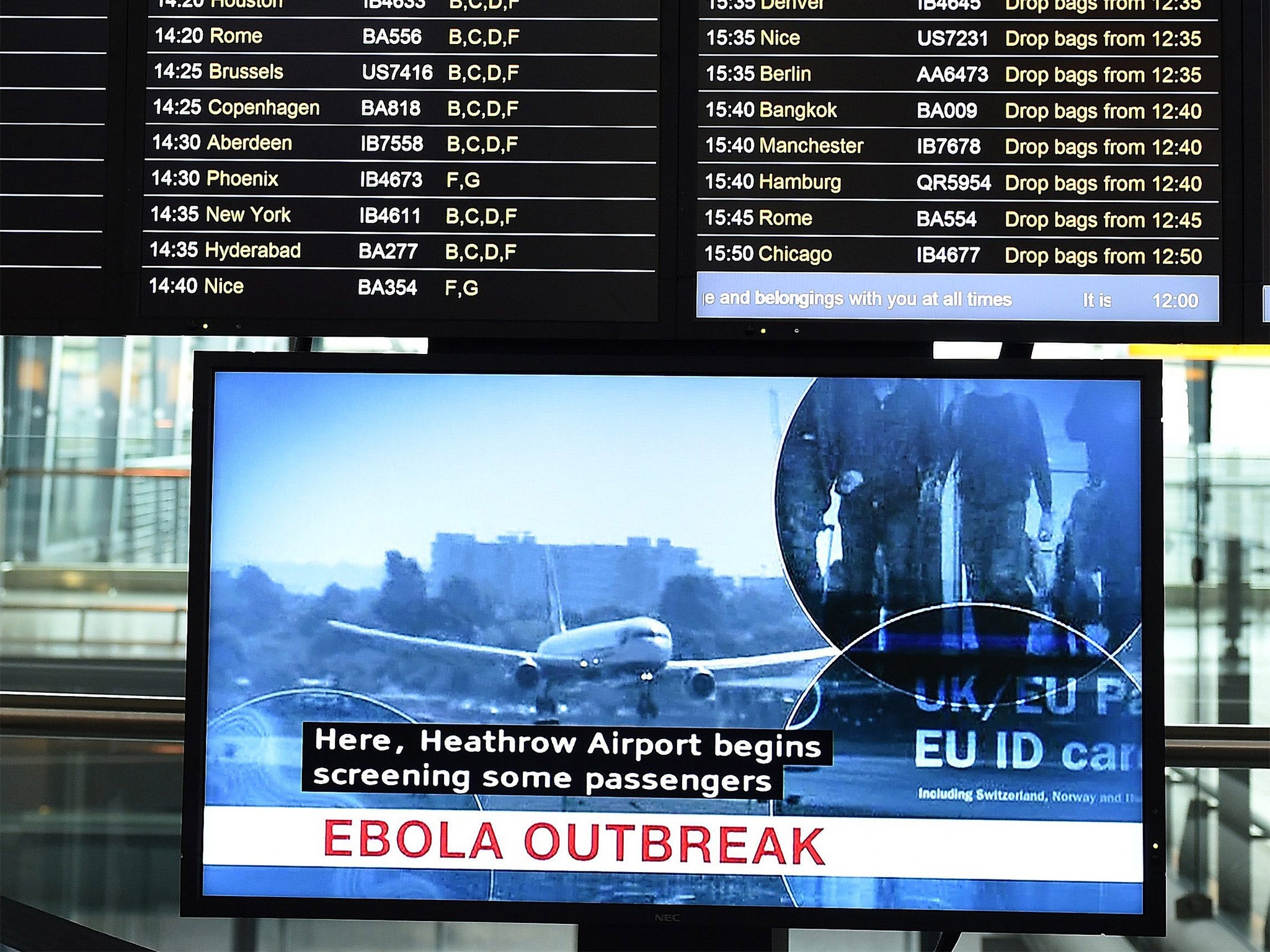Ebola panic spreads as screening reaches Heathrow
Government screening serves to confuse and concern travellers

Your support helps us to tell the story
From reproductive rights to climate change to Big Tech, The Independent is on the ground when the story is developing. Whether it's investigating the financials of Elon Musk's pro-Trump PAC or producing our latest documentary, 'The A Word', which shines a light on the American women fighting for reproductive rights, we know how important it is to parse out the facts from the messaging.
At such a critical moment in US history, we need reporters on the ground. Your donation allows us to keep sending journalists to speak to both sides of the story.
The Independent is trusted by Americans across the entire political spectrum. And unlike many other quality news outlets, we choose not to lock Americans out of our reporting and analysis with paywalls. We believe quality journalism should be available to everyone, paid for by those who can afford it.
Your support makes all the difference.“I’m going to London St Pancras,” a worried caller told BBC Radio Leicester today, “which is very, very popular with people from all over the world, so I’m possibly going to be in contact with someone who has Ebola.”
As the Government’s £9m campaign to screen some passengers arriving from the worst-affected areas of West Africa began, more evidence emerged of disproportionate panic among the British public.
Last week the Government said it would not introduce screening for people arriving from Liberia, Sierra Leone and Guinea, but then reversed the decision based on what it said was new advice from the Chief Medical Officer.
Checks are to be made of passengers arriving at Heathrow and Gatwick airports, and London St Pancras Eurostar terminal. When the system is fully up and running, 200 medical staff will be deployed.
Terminal 1 at Britain’s busiest airport was the location for the first checks. It was chosen because Brussels Airlines flights arrive there; the Belgian carrier is the leading link between West Africa, and one of only three airlines serving the worst-affected countries, the other two being Air France and Royal Air Maroc.
Passengers were to be asked by UK Border Force officials during the routine passport checks if they have travelled from one of the afflicted countries. Such individuals are then quizzed by staff from Public Health England, who take their temperature and provide information on how to respond if they develop symptoms such as a high temperature, headaches, fatigue or nausea.
At Terminal 1, the morning arrival from Brussels was the only relevant flight: it connected with an overnight flight from Monrovia in Liberia to the Belgian capital. One passenger, Regina Gere, had flown from Banjul in Gambia via Brussels. She told the TV channel London Live: “No-one stopped me. I did see a sign saying “Health Check”, but they didn’t come to me anyway. I feel that if I’ve just come from West Africa, where I was screened, it should be standard procedure. As a person who lives in Britain, I’d feel safer.”
Misconceptions about the risk the disease presents to travellers appear to have been intensified by the Government initiative. The Independent was contacted today by a number of worried travellers - including a couple planning their honeymoon in December. They had paid for a trip to Cape Verde, about 500 miles off the coast of West Africa. They had been told it was “on red alert” and were planning to spend hundreds of pounds switching to Mexico.
Support among the medical community for the piecemeal screening measures was lukewarm. Some experts have said it will divert staff and resources pointlessly, as it is unlikely to identify any sufferer who was not picked up by the preflight screening in West Africa.
Dr Chris Smith from Cambridge University said: “Having an additional filter certainly won’t find everyone but it might pick up a few.”
To confuse the picture, this is the last day that Brussels Airlines will serve Heathrow Terminal 1. Tomorrow, the carrier moves, along with three other airlines, to the new Terminal 2. Terminal 1 will then have no flights of interest from places where Ebola victims may have connected. It is not known if health staff will remain in place there.
Join our commenting forum
Join thought-provoking conversations, follow other Independent readers and see their replies
Comments